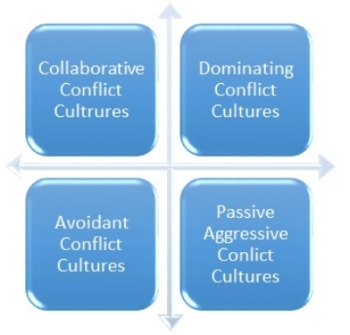Rationalising inappropriate behaviour – Passive Aggressive behaviour
I was talking to a friend about their 12 year old boy who refused to clean his room. His son sulked, then procrastinated and finally bulldozed the floor clean pushing every item into a heaped pile under his bed!!! When his Dad (my friend) became irritated by this, the boy feigned indignation “I don’t know why you’re so upset. I was going to do it as soon as I finished my homework.” Then when Mum showed exasperation at the rubbish tip under the bed their son played the victim: “Nothing I ever do is good enough for you!!! So I’m not perfect, neither are you, MUM!” (Yep, we are enjoying our kids whilst they are young!). Their son had managed to rationalise his defiant behaviour as compliant and even cast himself in the role of victim, blaming his parents’ ‘unreasonable’ demands and standards as the real problem. Sound familiar at work as well as at home???
What makes passive aggressive behaviour exasperating to manage is that it is behaviour that can be easily rationalised and therefore ‘poor behaviour’ becomes ‘justified’. What makes passive aggressive behaviour exasperating to manage is that it is behaviour that can be easily rationalised and therefore ‘poor behaviour’ becomes ‘justified’.
What we’ve seen…
Some (and this really is only a small sample) of the passive aggressive behaviours I’ve been asked to support workplaces with include:
- Teammates refusing to take instructions in person, requiring that they be emailed to create a paper trail
- Taking regular sick leave on the day that a Monthly report is due (but they always manage to produce a Medical Certificate)
- Employees refusing to speak at Team Meetings so the meeting becomes one way communication from the Manager
- Employees refusing to participate in performance discussions (sick leave, annual leave, urgent appointments, ‘misunderstandings’ about when a meeting was to be held)
- Teammates asking for information and being responded to just after they actually require the information
- People who sit next to each other not saying “good morning” or “good bye” to each other
- Giving a person the silent treatment in the staff lunchroom
- Throwing away a person’s magazine from the staff lunchroom, “Well I was told to clean the lunch room”
It’s soul destroying! Passive aggressive behaviour eats away at the very essence of why we work where we do. When people are being passive aggressive they are not dealing with the real issues that they are being confronted with, they are in a reactive and sometimes self-preservation mode.
Where does passive aggressive behaviour fit on the spectrum?
As explained by Gelfand, Leslie & Keller in “On the aetiology of conflict cultures”, determining the workplace conflict culture in your business requires that you examine whether employees have the agency to be active (top of the Y-axis) or whether they are passive in the organisation (bottom of the Y-axis). Not only regarding conflict but in all sorts of decisions making processes. This then needs to be crossed with whether the behaviours being demonstrated are agreeable (left of the X-axis) or disagreeable (right of X-axis).

Passive aggressive conflict cultures occur when employees are not empowered in the workplace and they are cynical about their ability to actively manage conflict. They feel they have very little agency at work and that their input and contribution does not change outcomes or impact on the key measurables of the workplace.
Organisations that are hierarchical and the Public Service and ‘blue collar’ environments are both classic examples, can easily fall into this trap. Employees may feel that no matter what they do “nothing will change” and it’s not in their interests to express anger openly as this is socially unacceptable and overt bad behaviour will be called out and disciplinary action will result. As a consequence employees may use the back door to vent their frustration, take revenge and sometimes even sabotage.

As a manager what can you do?
As a manager, it’s the rationalisation of behaviour that will get to you! There is nothing easy about managing this type of cold war situation. In fact we often advise it is harder than the outspoken abusive active warfare that can go on in the workplace. So there are no easy answers. But firstly identify and acknowledge it’s going on – i.e. diagnose it. Secondly, identify and acknowledge your role in it continuing – as manager have you condoned it by inaction or as a bystander have you contributed? Passive aggressive behaviour is a managerial issue that needs to be confronted. Sure there are usually macro issues at play but when push comes to shove it is you, the manager that has the greatest influence on the behaviours of the people around you and not the business, hierarchy or policy/procedure.
Once you start doing that, you can start to hold all of the other people around you accountable for their behaviour. It’s tough as the whole thing about passive aggressive behaviour is that in one context it appears to be reasonable, but in reality we know it is not. Like my friend’s son and his bedroom as well as the first image in this blog, “Hey I’m supposed to be back-hoeing, just doing my job…”. If their behaviour is hostile, call it and hold people accountable for their hostility.Direct communication should be fostered and then rewarded when it occurs. Help people say it directly and respectfully to each other. As you are trying to break a pattern of behaviour you’ll need to make it safe for people to talk, as opposed to email. This is a skill set and an attitude so you’ll need to develop these skills in your people and provide them with the opportunity to learn the attitude. That is where Zandy and I come in.
This is a process and it takes time. However if you feel that the soul is being sapped from your workforce, the only way forward is with committed hard work from you and your team.
Do your people have the skills to handle conflict? Is there an acknowledgment of the damage to the people and business or organisation that is caused by passive aggressive behaviour? Need some assistance to build a future and to skill your people to grow and not blame? Please give Zandy or me a call to discuss the many different options and opportunities that you have to work on this.



